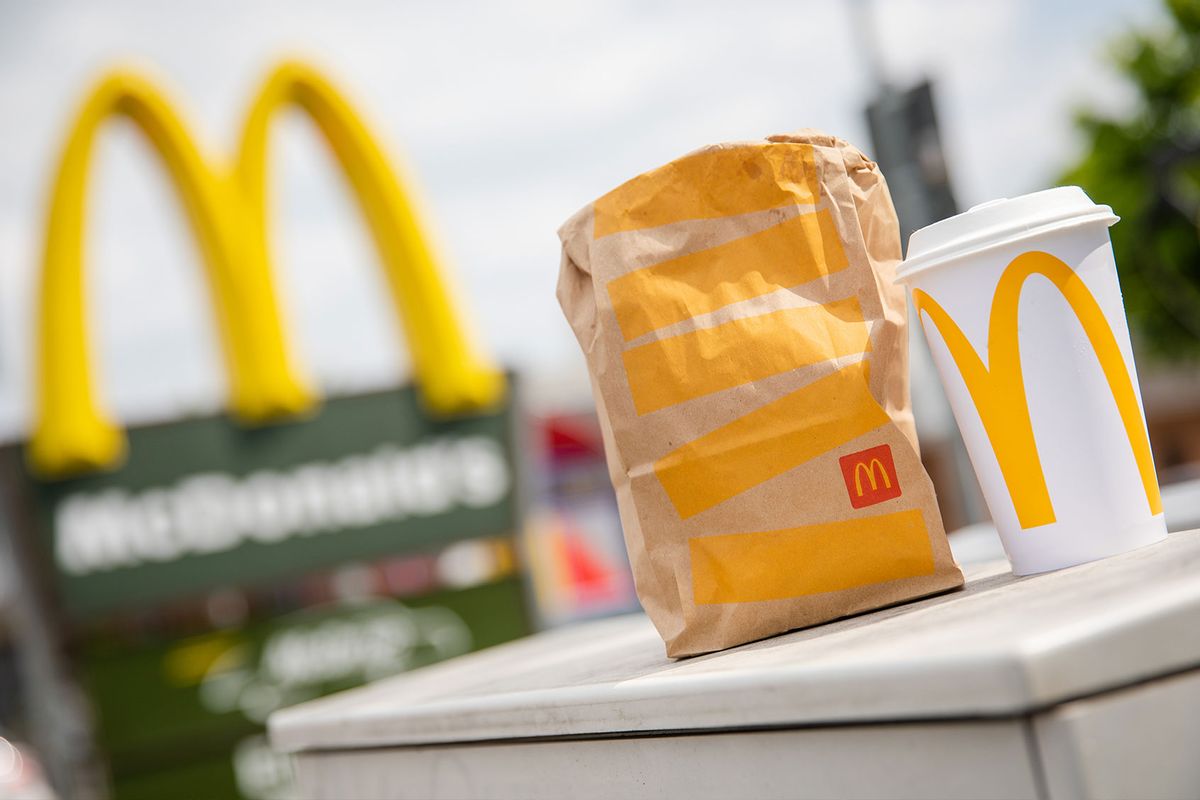Over the past decade, a growing number of consumers have been curbing their cravings for fast food. Rampant fast-flation — a portmanteau of fast food and inflation — has made even the simplest of fast foods unattainable for many Americans, compelling them to eat more meals at home instead of dining out.
A recent LendingTree survey of more than 2,000 adults between the ages of 18 and 78 found that although Americans still love the taste of fast food, they no longer deem it an affordable meal option due to high food costs. Seventy-eight percent of consumers now consider fast food to be a “luxury,” per the survey. Additionally, 71 percent of lower-income Americans who make less than $30,000 a year, 58 percent of parents with young children, 58 percent of Gen-Zers and 53 percent of women say they consider fast food to be a “luxury” because they’re struggling financially.
The decrease in consumer demand has fueled an ongoing “value meal wars” between several major fast food chains. This month, McDonald’s said it will offer a limited-time combo meal that includes a choice of either a McChicken, a McDouble or four-piece chicken nuggets, small fries and a small drink — all for just $5. Wendy’s soon followed suit, dropping its $3 limited-time breakfast combo meal, which features a Bacon, Egg, & Cheese English Muffin or a Sausage, Egg, & Cheese English Muffin with a small order of Seasoned Potatoes. Wendy’s said it’s “doubling down on better breakfast with unmatched value and quality on the go” with its latest meal deal, according to Food & Wine.
Burger King is the latest fast food joint to join the competition. Earlier this week, the hamburger chain announced that it will bring back its $5 Your Way Meal. Burger King previously offered $5 Duo deals that came with a choice of any two items like BK’s Whopper, Big Fish, Original Chicken Sandwich, or Chicken Fries.
The concept of a value meal isn’t anything new. Amid the late 1980s, McDonald's, Wendy's, and Burger King were embroiled in a series of on-and-off advertising campaigns — known today as the “Burger Wars” — in an attempt to one-up one another within the booming fast food market. Each chain sought to pioneer its own unique marketing tactic that would entice a large crowd of hungry customers. Much of the focus, of course, was centered on specific menu items. At the time, Burger King’s signature Whopper and McDonald's signature Big Mac were typically available for just 99 cents. That low price was a menu standard sans any special promotions.
The value meal was first introduced by Wendy’s in October 1989. It contained nine items that ranged from a Junior Hamburger to a garden side salad to a small Frosty, all priced at 99 cents. In 1998, Burger King got on board with its very own value meal, also priced at 99 cents — equivalent to just $1.85 in 2023. Five years later, McDonald’s dropped its Dollar Menu, which included the McChicken sandwich, McValue-size french fries, soft drinks and dessert.
The value meal was initially believed to be too “radical” by many. “The environment was intense. If you weren’t doing 99 cents, you were doing heavy couponing,” Denny Lynch, former senior vice president of communications at Wendy’s International, told QSRweb back in 2010. “Pizza chains, for example, became so wedded to coupons, it got to the point that consumers didn’t need to pay full price, they just had to wait a few days for the coupons to come out.”
Want more great food writing and recipes? Subscribe to Salon Food's newsletter, The Bite.
Nevertheless, the meal persevered. Today’s value meals are nowhere near the 99 cent price tags of the past. But they still offer consumers some reprieve from pricier menu options. Earlier this year, McDonald’s sparked a national debate after a restaurant location in Darien, Connecticut, charged an astounding $18 for a Big Mac combo meal. The multinational chain once again received backlash in March, after a restaurant location in southern California was shown offering a $25.39 meal bundle that included a 40-piece Chicken McNuggets and two large orders of French fries. Compared to those astounding prices, a $5 meal offers more bang for one’s buck.
In addition to fast food chains, several fast casual chains are also reducing their menu prices in hopes of winning back budget-conscious customers. Buffalo Wild Wings recently threw shade at Red Lobster to tout its new all-you-can-eat boneless wings deal. Every Monday and Wednesday for a limited time only, customers can indulge in endless boneless wings alongside endless fries for $19.99. In April, Denny’s announced the return of its All-Day Diner Deals, which was first introduced in 2022. Customers can choose from six offerings, like the Scrambled Eggs & Cheddar Breakfast deal and the All You Can Eat Pancakes deal, that start at $5.99. Chili’s also launched its “3 for Me” deal which invites customers to enjoy an ice-cold beverage, appetizer, and full-size entree starting at $10.99.



Shares